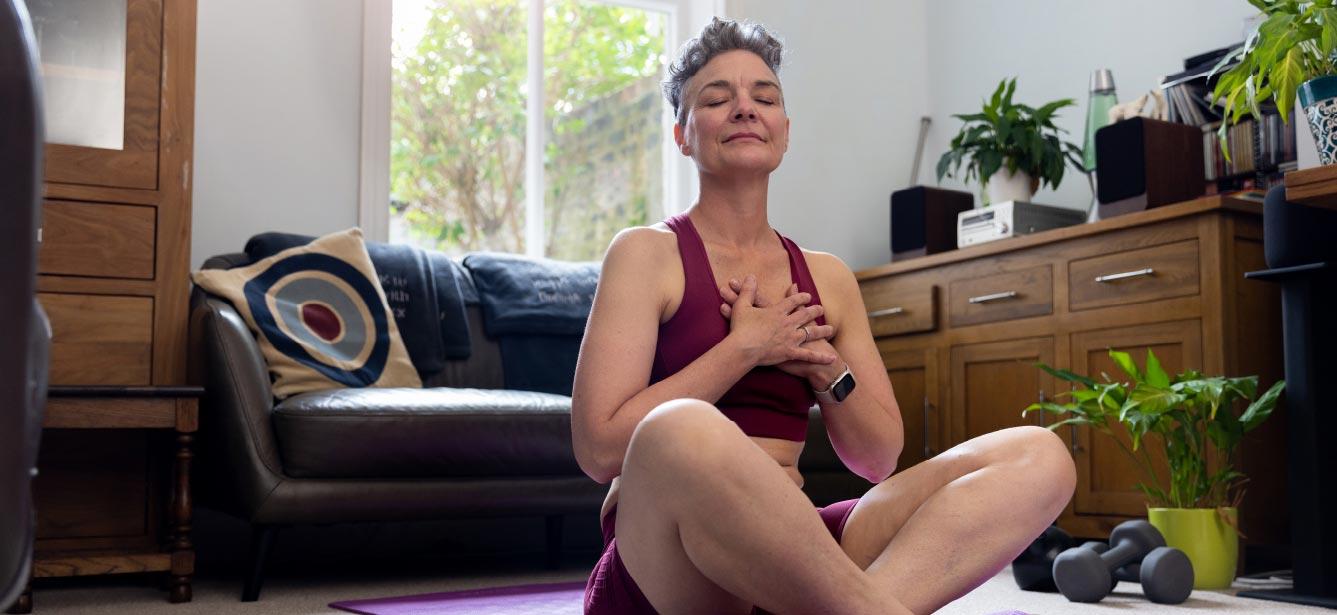
Related Topics
“Dig, if you will, the picture: of you and I engaged in a kiss.”
Many of us—of a certain age—may recall these iconic lyrics from the early 1980s. And those of us who don’t recall them likely still recognize the portrait of intimacy they so vividly paint: the intense connection between two partners in a physical relationship.
“Intimacy absolutely can involve sex,” said Amanda Krisher, Associate Director, Behavioral Health at NCOA’s Center for Healthy Aging. “I also like to remind people that intimacy doesn’t have to involve sex at all. It includes other forms of shared experiences and closeness, too, whether in a romantic or platonic setting.”
In an intimate relationship, Krisher explained, we feel valued and connected to someone else on an intellectual, emotional, or physical level. Physical intimacy refers to acts of touch (like hugging, cuddling, hand-holding, and sexual intercourse). Emotional intimacy happens when we care deeply about another person, feel a sense of trust, share similar values, and are able to express ourselves freely.
“All human beings crave intimacy,” Krisher continued. “And our need for it doesn't decrease with age.”
In fact, intimacy is vitally important to our well-being as older adults. Here’s why.
What are the benefits of intimacy in older adults?
Positive relationships are fulfilling at any age. And they offer real health benefits, too—including:1
- Lower stress levels
- Better healing after surgery
- Healthier behaviors
- Increased longevity
Some research suggests that sexual intimacy wards off depression.2 Physical affection has also been linked to lower resting blood pressure and higher levels of oxytocin,3 a feel-good hormone.
What are some barriers to intimacy as we age?
When it comes to sexual intimacy in particular, a number of age-related emotional, cognitive, and physical challenges can get in the way. These include:
- Emotional factors: As we grow older, we adults often shoulder the weight of past emotional wounds and present-day stressors. The pain and grief brought on by unresolved relationship conflicts, divorce, illness, and death can create roadblocks around trust and commitment, which—as Krisher explained—can make us less emotionally available. If you’re struggling with emotional obstacles, you may find that confiding in a trusted friend or trained counselor can help you tackle them head-on.
- Cognitive factors: Aging can bring about short- or long-term cognitive changes—such as memory impairment—that impact the way you interact with your partner. Depression, for example, can affect your self-esteem and cause you to lose interest in sex. Making an effort to create everyday moments of closeness—such as snuggling while watching a movie—can help you strengthen that intimate connection with your partner.
- Physical factors: The changes happening to our bodies as we age can get in the way of sexual intimacy. These changes may range from vaginal dryness and decreased libido in women to erectile dysfunction in men. Chronic pain, limited mobility, and recovery from surgery are other potential barriers to physical closeness. The good news, said Krisher, is that many of these physical factors can successfully be addressed. Using skin-safe sex toys and lubricants, engaging in sexual play (trying different sexual positions and props), and trying medications for erectile dysfunction can help for many people. Experimentation is key—try a variety of aids and approaches until you find a combination that works well for you and your partner.
Our own attitudes about our bodies can stand in the way of sexual intimacy, too.
“In today's image-conscious society, where so much emphasis is placed on youth and appearance, it’s hard not to be highly critical of our size, shape, and other physical attributes,” Krisher said. “And when we have a negative self-perception like that—when we feel unattractive and unsexy—it can crush our ability to be sexually intimate.”
Are you struggling with a negative body image? Talking to a therapist may help, Krisher suggested.
Enhancing intimacy as we age
For us older adults, everyday moments matter. Here are some tips for adding more “sparks” to your relationship and nurturing the emotional and physical bond you have with your partner.
- Share more. Intimacy involves a process of constant discovery between two people. Don't be afraid to be vulnerable with your partner by disclosing your deepest thoughts, fears, and feelings. Keep the lines of communication open, always. This may be as simple as swapping updates at the end of each day.
- Shake up your routine. Have interactions with our partner can become habitual and repetitive? Take a detour from the ordinary toward something unexpected: whether that’s shaking up your weeknight dinner routine by cooking a new recipe together, or catching a new movie at the theater instead of from the couch.
- Do something nice. Simple acts of kindness can become a casualty amid life’s many demands. Offering a compliment, taking on a task your partner dreads, or surprising them with a small but thoughtful gift can do wonders for your intimacy.
- Tackle a project together. Working alongside your partner toward a common goal can help foster a deeper bond—and cherished memories. Try taking a couples cooking class, study a new language together, or work on a jigsaw puzzle in the evenings after dinner. The goal doesn’t have to be newsworthy to be personally meaningful.
- Schedule alone time. It’s not always easy to enjoy quality time with your partner; amid daily responsibilities and obligations, our primary relationship often takes a back seat. Elevate its importance by blocking off time on your calendar. Plan a monthly date or daily cup of coffee together and stick to it. Even 15 minutes of simply being present with one another, uninterrupted, strengthens your emotional bond.
- Show physical affection. Sexual intercourse can be enjoyable, sure, but you can build intimacy without it. Simple acts like dancing in the kitchen to a favorite tune, giving each other a back massage, and holding hands during a neighborhood stroll can help bring you closer together.
- Unplug and be present. In this digital age, we can easily be consumed by endless scrolling on our phones or other devices. Make a point to set aside time each day to unplug the electronic devices and offer mutual undivided attention.
While intimacy and sex are two distinctly different things, they are intertwined. Especially in women, emotional intimacy can lead to more positive sexual experiences and greater sexual satisfaction. And physical intimacy, whether it involves sex or not, can help you feel connected with your partner in other ways.
“And that’s why intimacy matters,” Krisher said. “It’s something worth working toward no matter our age or stage of life, but especially as we grow older.”
Want to know more? Learn about improving your sexual health after 50.
Source
National Council on Aging,. Aging Mastery Program (AMP). Sexual Health: An Overview.
1. Northwestern Medicine. 5 Benefits of Healthy Relationships: Why Healthy Relationships Are So Important. September 2021. Found on the internet at https://www.nm.org/healthbeat/healthy-tips/5-benefits-of-healthy-relationships
2. Danile B. Kaplan, PhD, LICSW. Intimacy and Older Adults. Merck Manual Professional Version. April 2023. Found on the internet at https://www.merckmanuals.com/professional/geriatrics/social-issues-in-older-adults/intimacy-and-older-adults
3. Penn Medicine. Can You Kiss and Hug Your Way to Better Health? Research Says Yes. January 8, 2018. Found on the internet at https://www.pennmedicine.org/updates/blogs/health-and-wellness/2018/february/affection


